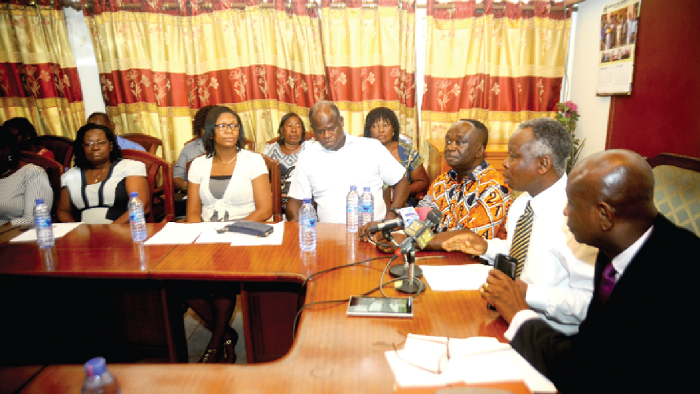
Lack of staff at Births and Deaths Registry attracting ‘goro boys’
The inadequate staffing situation at the Births and Deaths Registry (BDR) is promoting the activities of middlemen known as “goro boys” at the various registration centres, the Registrar of the BDR, Mr John Agbeko, has said.
Advertisement
He said the registry had 410 registration offices across the country, which were manned by 268 permanent staff, a situation he described as a disincentive to the operations of the registry.
Mr Agbeko made this known during a press conference to herald the 2016 Birth and Deaths Registration awareness Day scheduled to come off on September 29, 2016 in Accra.
The theme for the event is: “Early births and deaths registration: the foundation for a credible system.”
Mr Agbeko said the situation was such that some national service persons and volunteers who were brought in to help became middlemen when their service was over.
“Due to inadequate staff, we rely on national service personnel and volunteers who are not retained after the end of their term or service and so they hang around the offices and most of them turn into middlemen to assist clients of the registry,” he explained.
Sufficient resources needed
Besides the inadequate staff strength, the registrar said the registry was also faced with the challenge of inadequate and poor infrastructure.
He, therefore, called for sufficient resources to revamp the vital registration system to enable it execute its mandate of providing accurate and reliable information on births and deaths.
New initiatives
In spite of the challenges, the Director of Policy at the Ministry of Local Government and Rural Development, Mr Joseph Obeng Poku, said the BDR had adopted new initiatives to enhance the coverage of births and deaths registration.
According to him, the country’s registration of births and deaths stood at 60 per cent and 24 per cent respectively, against the United Nations benchmark of 90 per cent minimum coverage level.
Therefore, to achieve the UN target and attain its objective of generating statistical data to propel development planning, he said, the BDR had introduced the community population register programme and the automated birth registration system through the use of mobile phone technology.
While the community population register programme sought to establish a data collection system on communities to inform the district assemblies of planning, the automated birth registration system was aimed at helping to eliminate bottlenecks and enhance accessibility.
Under the automated birth registration system, he explained that officials of the registry captured the information at the community level through mobile telephony, which is transmitted to a central point at the national level for the processing of birth certificates.
The initiative is currently being piloted in 300 registration sites in 91 districts in the country.
Early registration is important
Mr Poku urged the public to take advantage of the initiatives and report all births and deaths for registration to help generate the relevant demographic parameters required for national development planning, implementation, monitoring and evaluation of policies.
He noted that registration for children under one year was free, while registration of a death within 30 days of occurrence was also free.
He added that registration of deaths needed to be done before burial.




